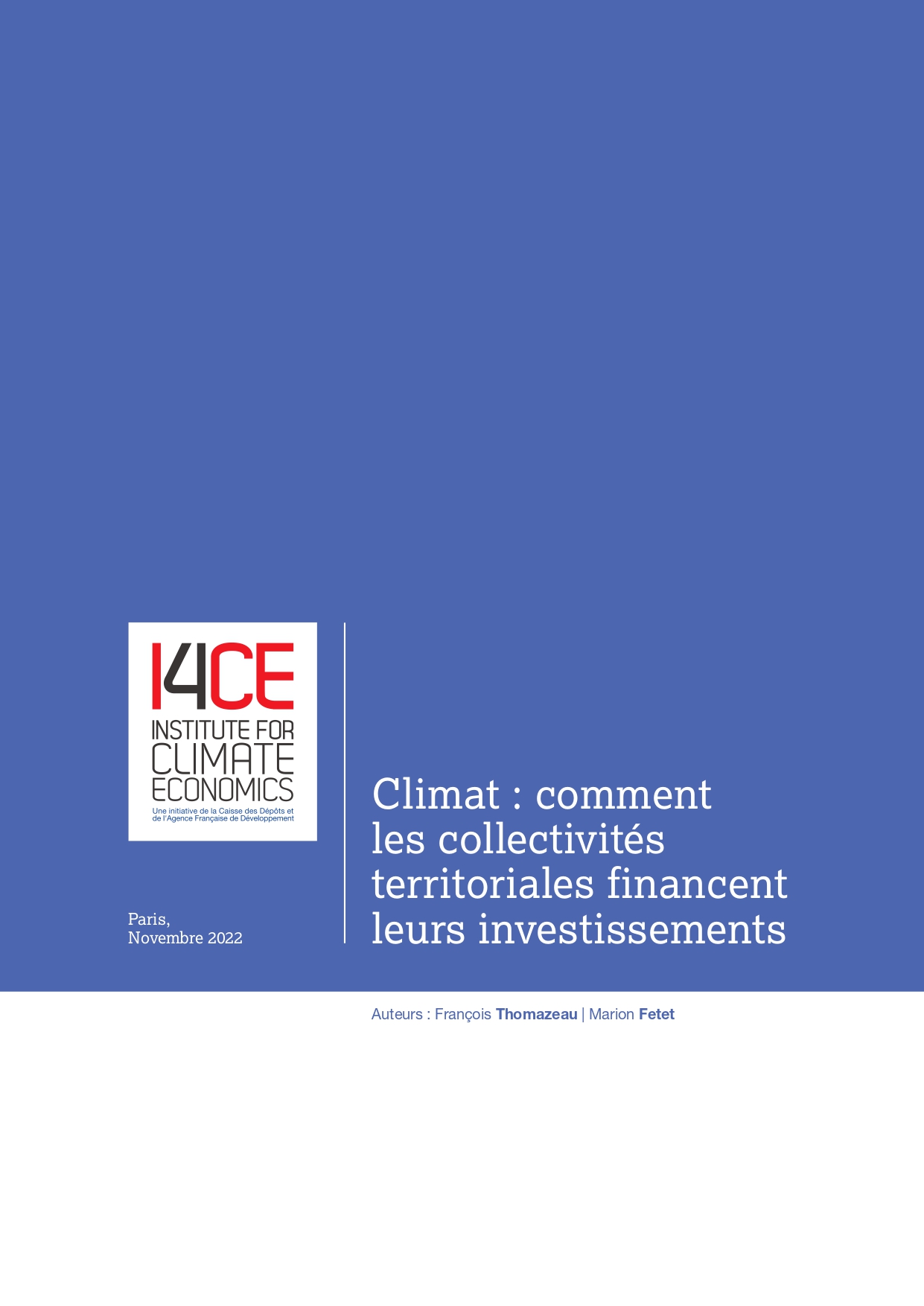Climate: how French local authorities are financing their investments?
Report only available in French
According to I4CE‘s research, to meet European and international commitments made by France to carbon neutrality, French local authorities need to more than double their annual climate-related investments (from €5.5 billion to €12 billion annually), to around 20% of their current total capital expenditure.
The aim of this study is to decipher how local and regional authorities finance their investments, across all sectors, and to highlight how the current macroeconomic context is likely to impact the need to accelerate climate-related investments.
The primary lever for financing local authority investments is their self-financing capacity
The primary lever for financing investments made by French local authorities is their self-financing ability, generated by the surplus between their operating revenues (taxes, grants and service revenues) and their operating expenses (payroll, operating expenses, subsidies, services and interests on debts). Of the €67 billion in capital expenditure scheduled for 2021, €39 billion, or 59% of the total, will be self-financed from operating cash flow.
Subsidies and grants received by French local authorities from third parties (French State the European Union, other local authorities) represent the second source of funding, the share of which is stable over time (€25 billion, or 37% of capital expenditure in 2021). Subsidies and grants from the State, which are directly dedicated to local authorities’ climate actions, have been quantified by I4CE in this publication: totaling €2.7 billion in commitments in 2023, they are rising sharply, due in particular to the creation of the “Green Fund” (Fonds vert) (which nevertheless includes expenditure on other environmental issues).
Debt is the final lever for financing local authority investment programs. Net borrowing by the local sector (new loans – repayments made) represented a total of €3 billion in 2021, or 4% of capital expenditure, after peaking at 8% in 2020 due to the health crisis.
The acceleration of climate-related spending is threatened by the high level of uncertainty in all levers for financing local public investment.
The ability of French local authorities to finance themselves in the coming years will be affected by a growth in operating expenditure that could outstrip that of their revenues, due in particular to the energy crisis, inflation, pressure on the wage bill and rising interest rates. At the same time, government grants for both operating and capital expenditure are set to remain stable in value. Against this backdrop, the major risk is that local authorities will anticipate a contraction in their savings, leading them to take cautious decisions today in programming their investments, including those dedicated to climate.
Although on the rise, subsidies and grants from the State (and public agencies) directly earmarked for local authorities’ climate actions represent only a small proportion of the sources of funding for their investments. Consequently, while the “Green Fund” sends out a positive signal to project developers, it cannot provide a response that meets the challenge of accelerating local authorities’ climate actions. In addition, there is no guarantee that the Green Fund will continue in the future.
Increased borrowing by local authorities is another possible lever for accelerating climate investments, especially as banks are developing their offer specifically dedicated to the ecological transition. However, the initial version of the Public Finance Programming Act for the years 2023 to 2027, still under discussion in French Parliament, sets out a debt reduction trajectory for local authorities, without any specific levers being put forward to implement it and in contradiction with an increased borrowing.
Lastly, capping operating expenditure could compromise local authorities’ ability to recruit the staff they need to implement the transition and support an ambitious investment program. I4CE evaluates the need for human resources to implement these actions at €1.5 billion a year, representing 2% of the total wage bill for French local authorities.
As part of the government’s ecological planning initiative, the “Green France” and French “Territorial Agenda” projects should therefore include among their objectives the development of a financial framework that supports and guides the acceleration in investment, which is essential to achieve carbon neutrality on a national scale.


